River Nature's impish thoughts manifested A sublime Pinnacle of lay bare thoughts A flower smiles when it rains For it will be drenched forever Into the autumn pal The dusk dawn lies peacefully The cat musk heaves a playful sigh When Aurora Borealis dream open A new sledge hammers through By the river upfront I cried a soothing honeybee For two more added beauty Has been my forte As the dying river died a peaceful death For autumn comes a decades musing high.
Synchronized Chaos’ First September Issue: Piece By Piece
Thank you to Jacques Fleury for responding to our request for readers to offer their expertise to assist writers! He has a variety of published writing which he can refer people to on request and is open to being interviewed on these topics:
-History of Haiti, as an author on the subject & as a Haiti born American citizen
-Black/African American History, as a “black” man who grew up in America & as an author on the subject
-Race and Racism, as a Person of Color having survived & thrived despite lived experience of racism & as author on subject
-Mental Health/Illness/Wellness & Recovery, having had lived experience & as an author on the subject
Everyone else, if you have an area of knowledge where you’d be glad to be interviewed to help people who are writing about that topic, please reach out to us at synchchaos@gmail.com.
Also, our contributor Abigail George’s book When Bad Mothers Happen, released January 2024 from European publisher Morten Rand, is available for Synchronized Chaos readers to review. Please let us know if this interests you and her publisher can send review copies (and we can publish reviews!)
It is available on Amazon here, and here is a link to a promo video.
This month, our contributors figure out how to make sense of the universe, piece by piece.
Alan Catlin renders lists and catalogues into a form of poetry, building up objects from their components, like a brick tower or a floral arrangement. J.D. Nelson crafts auditory and visual snapshots that can stand for and evoke an entire scene.
Soren Sorensen contributes mixed media alterations of reality and existential poetry on making sense of the universe. Mars Brocke’s mixed media artwork plays with reality and perception in a nod to Alice in Wonderland. His poetry, also surreal, evokes memories and states of mind. Martha Ellen conveys the psychological changes induced by benzodiapine medicine and the fluidity and vulnerability of the human brain and mind. Mark Young creatively defines concepts through descriptive words that once explained something.
Christina Chin and Uchechukwu Onyedikam’s collaborative haiku focuses on and thus highlights the value of noticing small and in-between moments.
Saidova Mahzuna outlines methods for learning and teaching vocabulary. Mo’minjonova Diyora highlights the benefits of continuing to read and learn throughout life. Sevinchoy Sanat outlines ways to enhance education through technology as Ibrohimova Durdonaxon outlines different areas to focus on when improving childhood education. However, sometimes the old ways still hold wisdom: Daniel De Culla relates a humorous tale of a modern woman who chooses to go with folk wisdom regarding her health. Gregg Norman presents a poem from the point of view of a character who’s living life to the fullest, with health benefits as incidental.
Noah Berlatsky muses on the identity of Spock and on what makes intriguing literary characters. Jacques Fleury reflects on his personal and cultural identity. Mesfakus Salahin speaks to life, death, and personal accountability, redemption, and the meaning of one individual life. David Sapp relates a tale of responsibility, honor, and mailboxes. Ranjan Sagar reminds us that others’ poor character need not diminish our own. Lilian Dipasupil Kunimasa addresses the tension between roots and wings, needing to fly free and wanting a stable nest, and reflects on the end of life. Paul Tristram speaks to personal growth, strength, and self-discipline while Sarvinoz Mansurova shares her family’s dreams for her and her own aspirations. Nigora Tursunboyeva’s short story celebrates adventure and finding one’s own way in life.
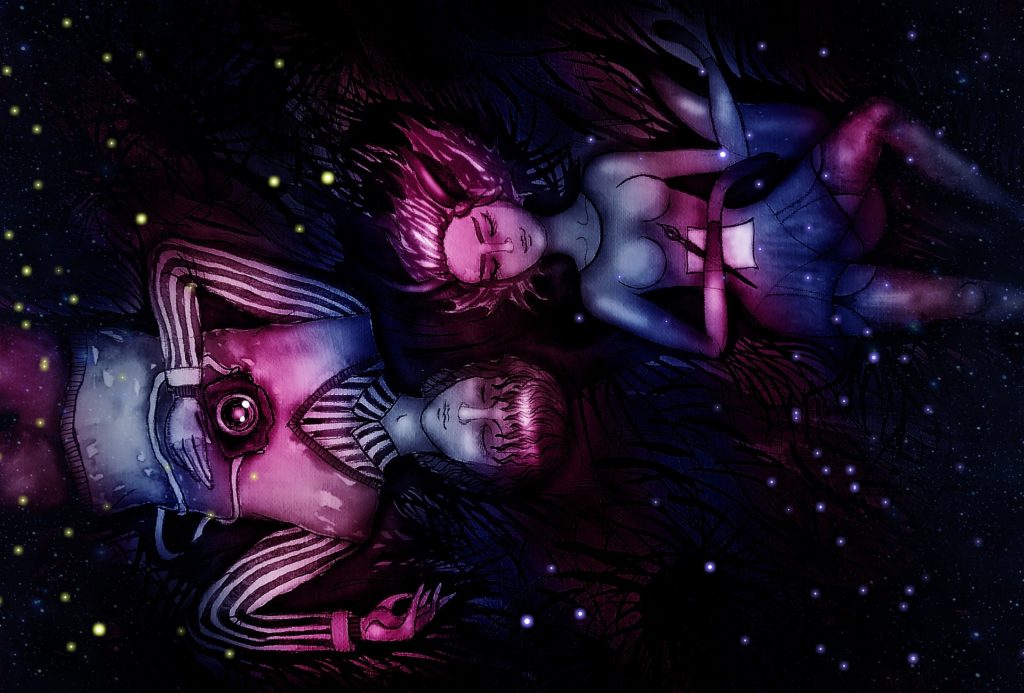
Gaurav Ojha reflects on how he will take nothing with him when he leaves the earth. Graciela Noemi Villaverde expresses the exquisite anguish of losing someone close to her. Engin Cir speaks to the grief, but also the indignation, of romantic heartbreak. Faleeha Hassan evokes the feeling of anxiety, being exposed and weighed down. Mykyta Ryzhykh conveys alienation, cold, and a halfway state between life and death.
Duane Vorhees speaks to creativity, sensuality, and history, evoking major and minor apocalypses that occur when people cannot or do not adapt to constant change. Taylor Dibbert reflects on how creativity can help him weather, if not avoid, his struggles. Z.I. Mahmud links the expectations of Samuel Beckett’s characters in Waiting for Godot to those of broader Western religious and cultural traditions.
Adam Fieled writes of our twin natures, the balance of masculine and feminine. Z.I. Mahmud examines the family relationships in D.H. Lawrence’s Sons and Lovers through a Freudian psychoanalytic lens. Karimova Sarvara Karimovna crafts an elegant and highly personal love poem. Kristy Raines speaks to the joy of a close loving relationship. Aytuvova Khurshida shares a love story that gets interrupted by life, but where the former partners always remember each other. Numonova Khonzodabegim poignantly shares the challenges and risks military families face.
J.K. Durick speaks to the harsh realities of aging and death and hunger, which can be eased, but not completely erased, by modern culture. J.J. Campbell’s poetry addresses aging and resignation while Dildora Toshtemirova reflects on the loss of a close friend or lover. Nosirova Gavhar’s short story combines two great human passions: love and grief.
Paul Callus and Christina Chin collaborate on a wide-ranging haiku collection evoking home, place, and time. Stephen Jarrell Williams captures many of summer’s varied moods in his haiku. Steven Croft watches a Civil War reenactment through the eyes of a modern veteran. Brooks Lindberg speaks to what we remember and what we forget, of grasping happiness despite reality. Rustamjonova Nodira celebrates the perseverance of Uzbekistan’s founders, leaders, and people, as Nuraini Mohammed Usman urges her society to carry out collective housecleaning and purge old enmities.
Murodova Sitora urges teachers to continue to learn and develop their skills and be accorded the respect and resources in order to do so. Abduraximova Muyassarxon relates how a dedicated teacher helped her regain her confidence. Rukshona Qiyomova outlines the many responsibilities of a teacher and the value of the teaching profession. Sevinch Saidova reflects on the value of education for personal development. Sushant Kumar highlights the need for teachers to serve as role models as well as impart intellectual information.
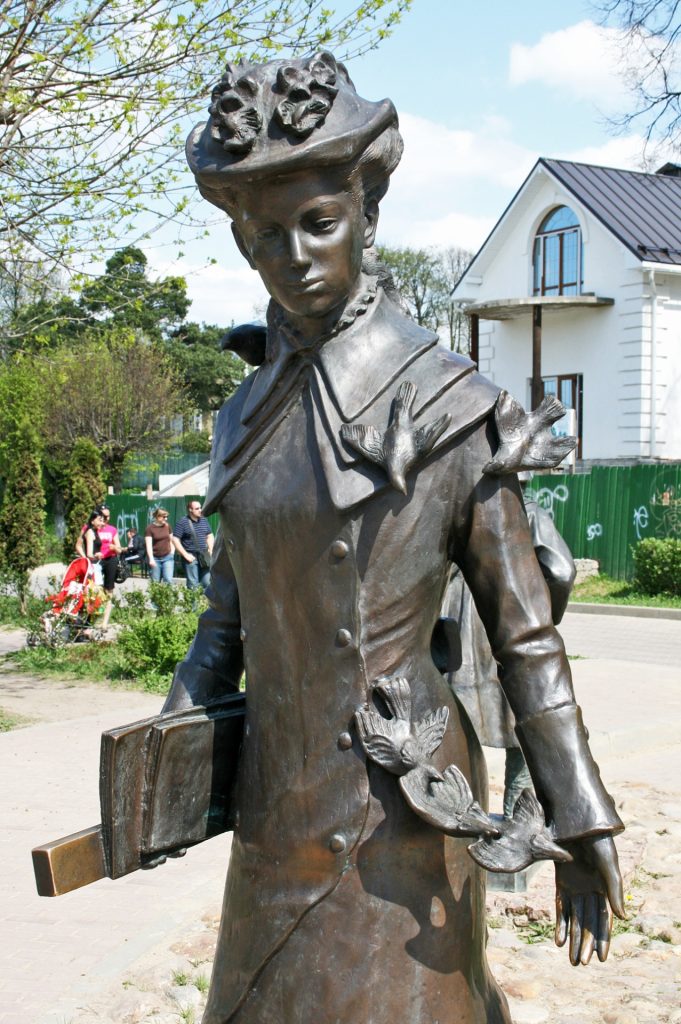
Majidova Sevinch pays tribute to the many dimensions of a mother’s love and care. Sobirjonova Rayhona offers a tribute to her sister’s care and friendship. Ilhomova Mohichehra takes joy in her friends and her lovely homeland of Uzbekistan.
Brian Barbeito revels in the easy intimacy of the conversation on a summer hike. Salokhiddinova Mohichehra examines the structure and function of nature close to home, the human kidney. Isabel Gomez de Diego contributes visual poetry of everyday life: dinner with family, a visit with a grandson, a tree in the yard. Kylian Cubilla Gomez takes closeup peeks at backyard chickens.
Sayani Mukherjee recollects a quiet morning outdoors under the blue sky, smelling the scent of trees with her child. Maja Milojkovic yearns for and finds reminders of her lover in every aspect of nature. Intizor Samandarova evokes the sky’s expansive emptiness in her poetry as Don Bormon poetizes about the vast variety of clouds.
However, nature is not always calm: researcher Les Beley speaks to the ecological impact of Russia’s invasion of Ukraine. Mahbub Alam describes the recent flash floods in parts of Bangladesh and the loss of life and property.
Farida Botayeva reflects on how quickly our circumstances and emotions can change. Ziyoda Murodilova considers how she will persevere in her life despite unpredictable feelings.
Finally, Christopher Bernard presents an old-style lyrical recipe for preparing hope in the kitchen.
Short story from Numonova Khonzodabegim
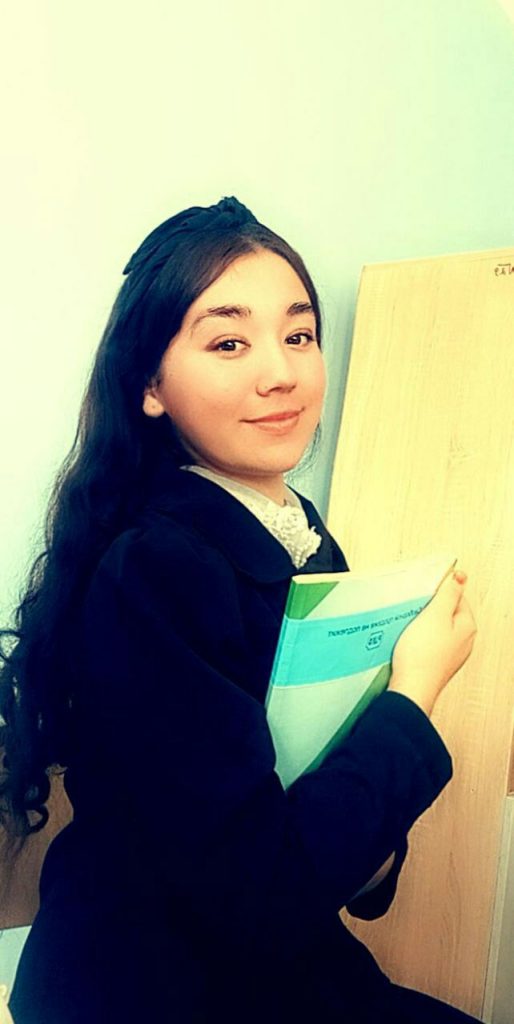
The story of a girl
Do you know? What am I afraid of the ringing of the phone… At that time I was an eight-year-old child. My father was a soldier. My mother worked as a teacher at school. because of my dad’s work, we often moved. My mother had to constantly change her job from province to province. But it was not always possible to find a job for my mother. I didn’t have any close friends because my school changed every time. At school, it would take time for me to learn from my teachers. I couldn’t go out with anyone. All my classmates used to make fun of me as a nomad. but I love my dad’s work. Every time my father left for work, he would kiss me goodbye.
Like all children, I longed for my father to be with me more. But it remained a dream. my father always came home late from work, and sometimes stayed on night duty. At night, I would go to sleep waiting for my father…
I remember that day was my birthday. I was nine years old. On that day, my mother told my father to come from work early today for our daughter’s birthday. Dad came home at nine o’clock late. Four came in. For me, my dad’s arrival made me the happiest out of all four. My happiness did not last long. Until that phone rang, my dad left in a hurry. I did not know that that day would be the last time I would see my father…
Numonova Khonzodabegim Shuhratbek’s daughter is a student of the 11th grade.
Essay from Ibrohimova Durdonaxon
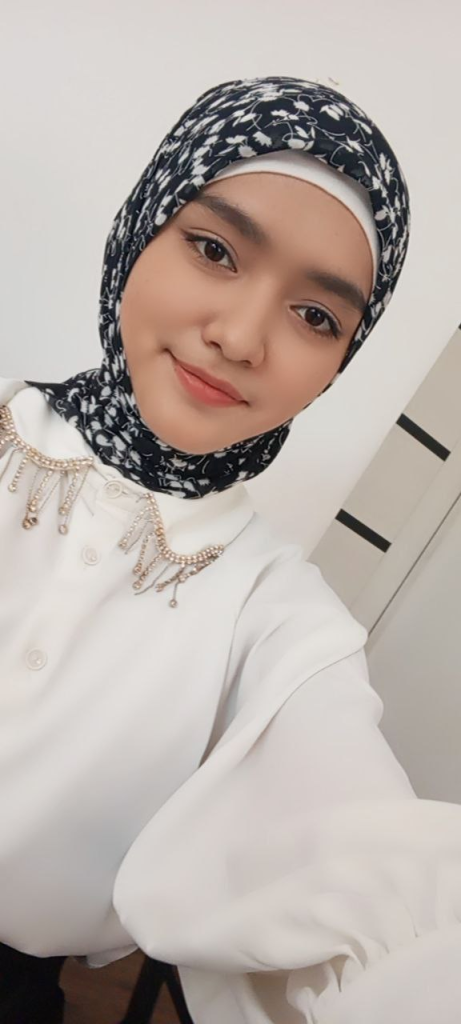
Key Aspects of Children’s Education: A Brief Overview
Children’s education is essential for personal development and societal progress. This article highlights the most important aspects of children’s education, including early childhood development, the role of play, parental involvement, social and emotional learning, inclusive education, and technology integration.
1. Early Childhood Development
Early childhood is crucial for cognitive, social, and emotional growth. High-quality early education programs promote language, problem-solving, and creative skills while also fostering emotional and social development. These programs provide a strong foundation for lifelong learning and academic success.
2. The Role of Play in Learning
Play is vital for children’s cognitive, social, and emotional development. It helps children explore, solve problems, and develop social skills. Different types of play, such as imaginative, structured, and physical play, contribute to creativity, strategic thinking, and physical health. Incorporating play into education enhances engagement and holistic growth.
3. Parental Involvement
Active parental involvement is linked to better academic performance, higher self-esteem, and improved behavior in children. Effective involvement includes supporting learning goals, fostering a love for reading, and establishing strong partnerships with educators. Quality of involvement is more impactful than quantity.
4. Social and Emotional Learning (SEL)
SEL focuses on developing skills like empathy, self-awareness, and emotional regulation. Integrating SEL into the curriculum promotes better academic outcomes, reduces bullying, and builds resilience. It equips children with essential life skills to manage emotions and relationships.
5. Inclusive and Equitable Education
Inclusive education ensures that all children, regardless of background or ability, have equal opportunities to learn. It involves adapting teaching methods and providing support to meet diverse needs. Equitable education addresses disparities related to socioeconomic status, race, and other factors, creating a fair and supportive learning environment.
6. Technology Integration
Technology enhances learning by offering interactive and personalized content. Effective use of digital tools can foster creativity and collaboration but must be thoughtfully integrated to support traditional learning methods and ensure equitable access for all students.
Conclusion
Focusing on these key aspects helps create an educational environment that nurtures each child’s potential, preparing them for a successful and fulfilling life.
Ibrohimova Durdonaxon was born on April 6, 2005. She studies at Kokand State Pedagogical Institute and lives in the Pandigon neighborhood of Quva District, Fergana Region.
Essay from Mo’minjonova Diyora
Books are our friends
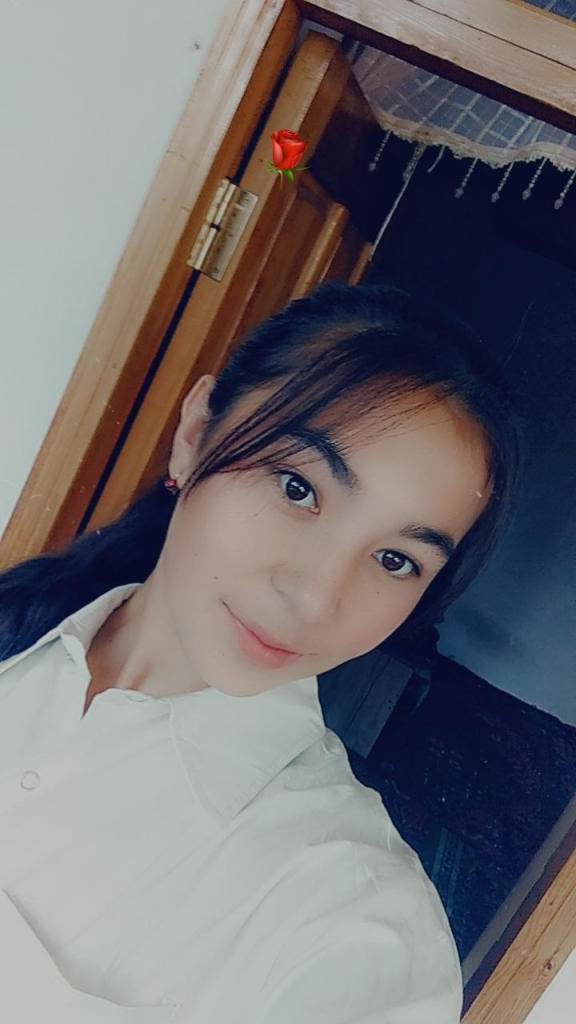
In our life we can meet different educated people, who read different books to achieve these successes. It is these books that made the uneducated and educated people become scientists. There are many types of books. There are also books for people with different skills. There are many books of world literature.
Among us there are folk proverbs like: ‘a book is our friend’ and ‘a book is a source of knowledge’. Always full of valuable and useful information for us. I mostly like to read world literature. I am especially interested in the works of Shakespeare and Pushkin. I recommend it to you too. A person who reads books is never lacking. Besides, he craves knowledge in his adult life. We can use the wide opportunities given to young people to visit various libraries and read to our heart’s content. It is this books that make scientists, and we should read various magazine and articles without limiting ourselves to books.
Mo’minjonova Diyora was born in 2007, 4th September in Turakurgan. She is a student of 11th grade.
Poetry from Mykyta Ryzhykh
the birds told me about silence forest temple spring *** The cut off silence of snow You swam out of the kefir night into the dawn I dug a hole for you and I made a coffin for you I ghosting and brought the lonely future closer Cracks in the air crunched loudly Someone is sneaking someone is looking for you in the silence Blizzard blossoms like apple tree above And from below under the ground worms are crawling into the future Triangular night is knocking on the back of head And in the back of the head there is nothing except wormy posthumous tin *** we prayed to everyone: from Jesus and Satan to Batman and the Joker as a result: your face is now forever young the photo on the cemetery granite slab never changes *** grass under your feet glass under your feet crunch underfoot crunch inside Rainer Kunze's rain gardens fall on the heads of silent stones that we were before we were born *** a person is born with a noose around his neck a rope that is attached to god who will wash us in the rain without a home who will wash our feet like in ancient times one cheek for a hit, one cheek for suicide and somewhere between the cheeks there are eyes that slid down from what they saw *** torn belly herbarium autumn leaves stick to the eyes future in the rain moisture attracts worms birds drink the silence in an abandoned cemetery
Short story from David Sapp
Mailbox
On occasion this distant memory surfaces at curious moments. I’m unsure why. However random and peculiar, I suppose the event, over fifty years ago, had some significance for my young mind. One night when I was six or seven, in my pajamas after my bath but before bedtime, close to Hop on Pop and Green Eggs and Ham, we are all in the kitchen, Mom, Dad, me. I’m eating either cereal with six teaspoons of sugar or Nestle’s Quik chocolate milk and Oreos with even more sugar. There may or may not be a brushing of teeth soon. There’s a knock at our door and there’s the neighbor kid, the Klines’ oldest teenager sheepishly apologetic, informing Dad that he just hit our mailbox with his father’s car at the end of our long, washed-out lane. I worry about getting a letter tomorrow from Patty, my girlfriend. He is opening his wallet offering to pay Dad for the damage – the few dollars he has now and the rest on payday.
Dad said later that he could have kept on going and no one would be the wiser, except maybe the father if he looked closely at the fender or grill. But he stopped and did the right thing. This made an impression upon Dad and apparently it made an impression upon me as at that age anything that would impress Dad was certain to impress me. Here was the outset of an honorable young man. Dad told him not to worry about it – to put his wallet away. The next day Dad and I went to the hardware store, bought a new box, and affixed our numbers to it. Dad showed me how to dig a post hole, setting a flat stone in the bottom so the wood would not rot, righting the post with the level, then tamping the dirt down around the base to firm it up. I used this knowledge a few times for my own mailboxes at the end of my own driveways. When I began driving, I was lucky not to destroy any mailboxes, although I do recall scraping against a city limits sign on the way to school – but there was no one handy to confess to. And fortunately, so far, none of my mailboxes have been demolished by a neighbor.
